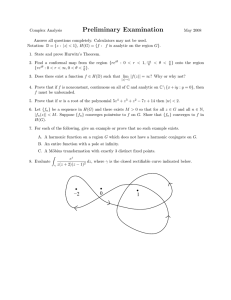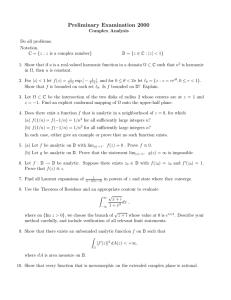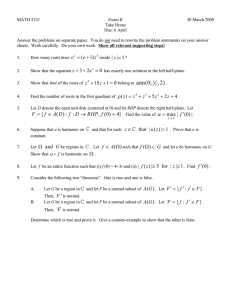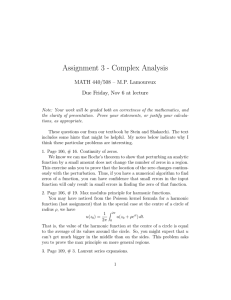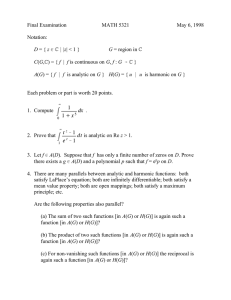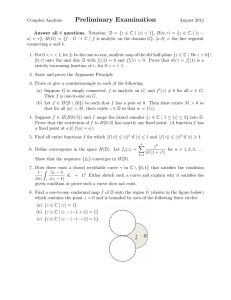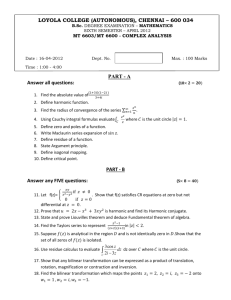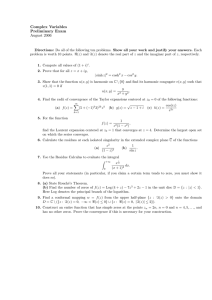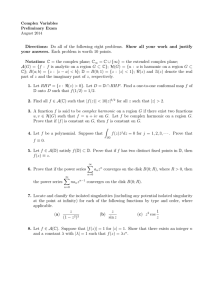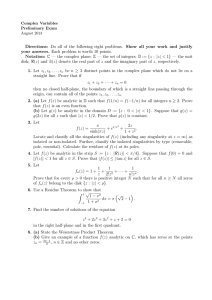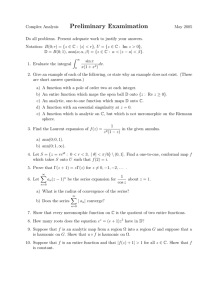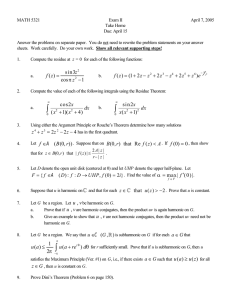Preliminary Examination
advertisement
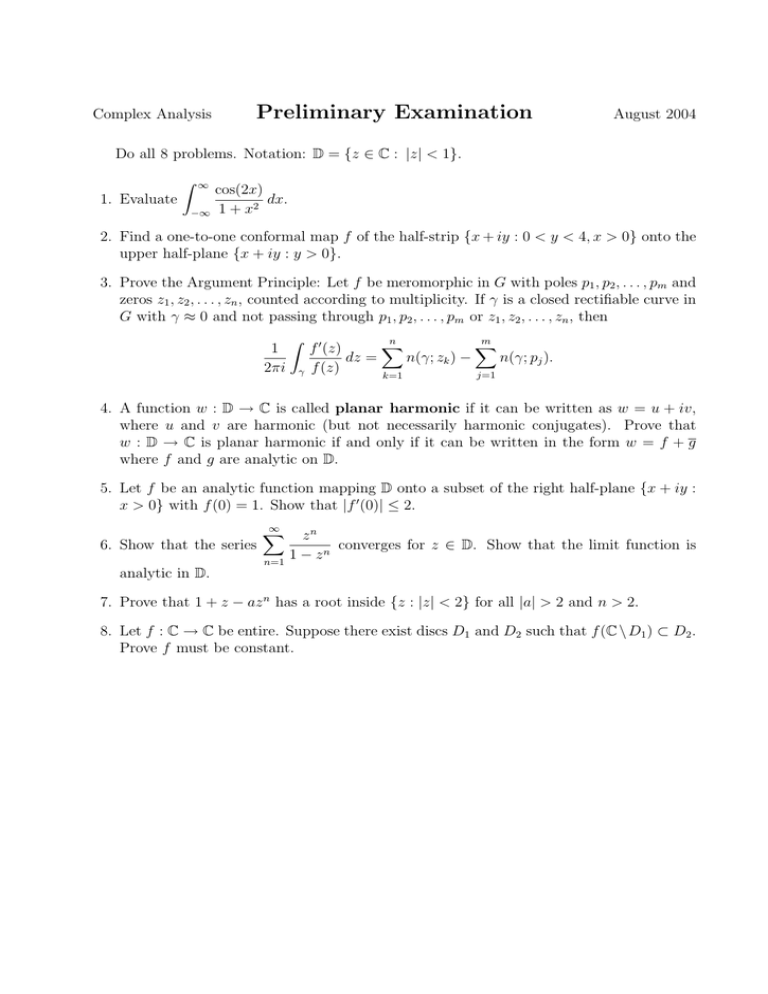
Complex Analysis
Preliminary Examination
August 2004
Do all 8 problems. Notation: D = {z ∈ C : |z| < 1}.
Z
∞
1. Evaluate
−∞
cos(2x)
dx.
1 + x2
2. Find a one-to-one conformal map f of the half-strip {x + iy : 0 < y < 4, x > 0} onto the
upper half-plane {x + iy : y > 0}.
3. Prove the Argument Principle: Let f be meromorphic in G with poles p1 , p2 , . . . , pm and
zeros z1 , z2 , . . . , zn , counted according to multiplicity. If γ is a closed rectifiable curve in
G with γ ≈ 0 and not passing through p1 , p2 , . . . , pm or z1 , z2 , . . . , zn , then
1
2πi
Z
γ
n
m
X
X
f 0 (z)
dz =
n(γ; zk ) −
n(γ; pj ).
f (z)
j=1
k=1
4. A function w : D → C is called planar harmonic if it can be written as w = u + iv,
where u and v are harmonic (but not necessarily harmonic conjugates). Prove that
w : D → C is planar harmonic if and only if it can be written in the form w = f + g
where f and g are analytic on D.
5. Let f be an analytic function mapping D onto a subset of the right half-plane {x + iy :
x > 0} with f (0) = 1. Show that |f 0 (0)| ≤ 2.
6. Show that the series
∞
X
n=1
zn
converges for z ∈ D. Show that the limit function is
1 − zn
analytic in D.
7. Prove that 1 + z − az n has a root inside {z : |z| < 2} for all |a| > 2 and n > 2.
8. Let f : C → C be entire. Suppose there exist discs D1 and D2 such that f (C \ D1 ) ⊂ D2 .
Prove f must be constant.
